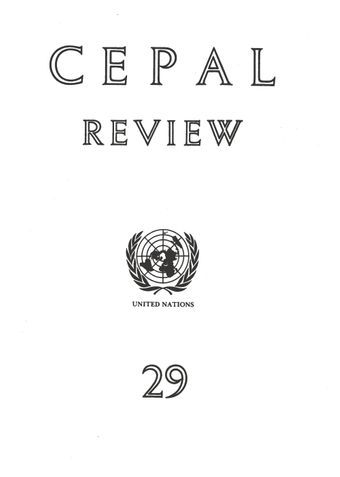-
Youth in Brazil: old assumptions and new approaches
- Source: CEPAL Review, Volume 1986, Issue 29, Oct 1986, p. 55 - 78
- Spanish
-
- 29 Oct 1986
Abstract
The author examines the situation of young people within the framework of the deep changes that have occurred in Brazil in recent decades. There are three aspects that interest her most. First, she addresses employment and, in this context, the evolution of employment and wages and the effect the crisis has on them. In this regard, the most outstanding observation is that the urban economically active population has become younger since the 1970s as a result of the increased rate of young people’s participation, contrary to conventional assumptions that modernization will have the opposite effect. Second, she examines education and stresses that educational levels in Brazil are lagging well behind the observed economic progress. In fact, the proportion of young people with no instruction or only a few years of schooling is very large, particularly in rural or relatively less-developed areas, such as the North-East. Finally, she deals with the family, which has been greatly affected by changes in other spheres of society, and with young people’s relations with their families, which has given rise to a complex interplay of solidarity and conflict.





